
Candidates taking the high school graduation exam with elective subjects this morning, June 27
PHOTO: NHAT THINH
Chemistry graduation exam requires application of knowledge
Mr. Huynh Thanh Phu, Principal of Bui Thi Xuan High School (HCMC) commented that this year's high school graduation exam in chemistry was designed to closely follow the spirit of innovation according to the 2018 GeneralEducation Program, ensuring reasonable differentiation, promoting thinking ability, and applying knowledge to practice instead of just testing pure memorization ability.
Part 1 consists of 18 objective multiple choice questions, distributing knowledge relatively evenly among the content of all 3 blocks of grades 10, 11 and 12. The questions are at a basic, reasonable level, not tricky, ensuring that average students can do about 50% - 60% of the score. This is the part that tests basic knowledge in the right direction for developing qualities and abilities as proposed by the program.
Part 2 is a highlight with 4 true-false questions, each with 4 options that need to be carefully analyzed. The way the high school graduation exam for chemistry is designed is quite good because it not only tests knowledge, but also stimulates analytical thinking, critical thinking, and the ability to apply knowledge to handle practical situations, most of which are built from common experiments. This is also a necessary reminder to education managers that it is time to invest properly in chemistry laboratories in high schools. An exam based on an experiment is only truly meaningful when students have the opportunity to practice and experience it properly. Lack of equipment, or having it but not exploiting it effectively, will make these practical questions unfamiliar to students.
Part 3 consists of 6 questions, both textbook and calculation, mainly testing the ability to understand and solve basic chemistry problems. Although not too complicated, it still requires students to study the lesson thoroughly, master the problem-solving process and be careful in calculating to avoid mistakes in the final step. This is the part where many candidates can lose points unfortunately due to subjective mentality or lack of practice.
Overall, this is a good, reasonable test, in line with the innovation orientation of the 2018 General Education Program. The test is not too difficult but challenging enough to classify and promote students' self-study, self-training and practical thinking skills. Students who have a solid grasp of knowledge and a good test-taking strategy will easily achieve 8 points or more. Meanwhile, average students can achieve a safe score if they are not subjective and have serious review.
The biggest message from this exam is not only to test students' abilities, but also to send a profound message to schools and educational administrators: if you want students to develop their abilities and qualities, you cannot teach them in a passive way. Investing in active teaching and learning, in standard laboratories is an urgent requirement so that chemistry is not only an exam subject, but also a subject that inspires passion, critical thinking and problem-solving skills.

Chemistry exam questions were not considered difficult by candidates in Ho Chi Minh City.
PHOTO: NHAT THINH
Predicted score range from 6 to 7
Master Pham Le Thanh, a teacher at Nguyen Hien High School (District 11, Ho Chi Minh City), acknowledged that the chemistry exam has been innovated in both form and content approach, covering knowledge from grades 10, 11, and 12, with the main focus on grade 12 knowledge.
The questions and commands of the exam closely follow the requirements of the current curriculum, demonstrate the inherent experimental scientific nature of chemistry, and link chemistry with real life and production.
The exam ensures the requirements for graduation and university admission, but the most outstanding point is the clear presence of practical questions. The problems not only test theoretical knowledge, but also bring the breath of chemistry into real life clearly.
The basic knowledge at the level of knowing and understanding is in the first 18 questions of part 1. From part 2, the questions gradually become more differentiated and the questions at the high level of application and classification are in part 3, especially the questions calculating meaningful chemical quantities such as heat released from reactions, the percentage of elemental components in cast iron and steel, titrating Fe(II) solution with KMnO4 solution, synthesizing benzoic acid...
It is predicted that the average score of the chemistry exam may be between 6 and 7. Only students with good or excellent abilities can carefully handle questions in part 2 and questions 5 and 6 (part 3), calculate meaningful chemical quantities to achieve a score of 8 or higher.
This year's exam also focuses on students' spirit of self-study, self-discovery, and scientific research. For elective subjects, once chosen, students must have the ability and pursue, study seriously, proactively, and will certainly achieve good results and achieve the highest results on the high school graduation exam.
Source: https://thanhnien.vn/du-doan-pho-diem-tu-de-thi-tot-nghiep-thpt-mon-hoa-185250627114442559.htm








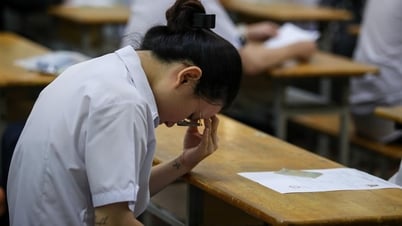



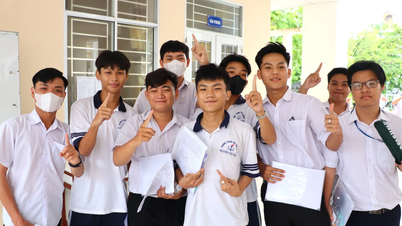


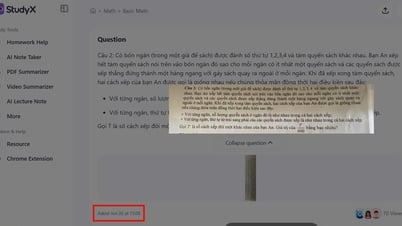























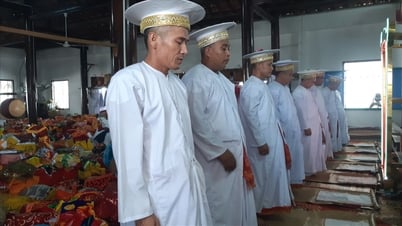

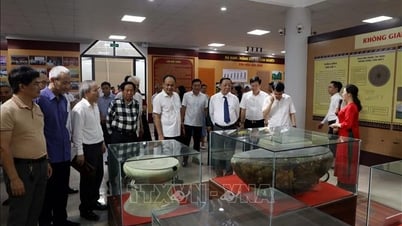

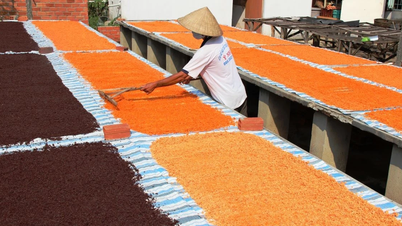



































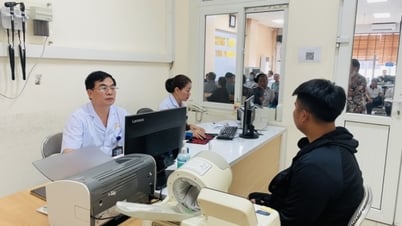




























Comment (0)